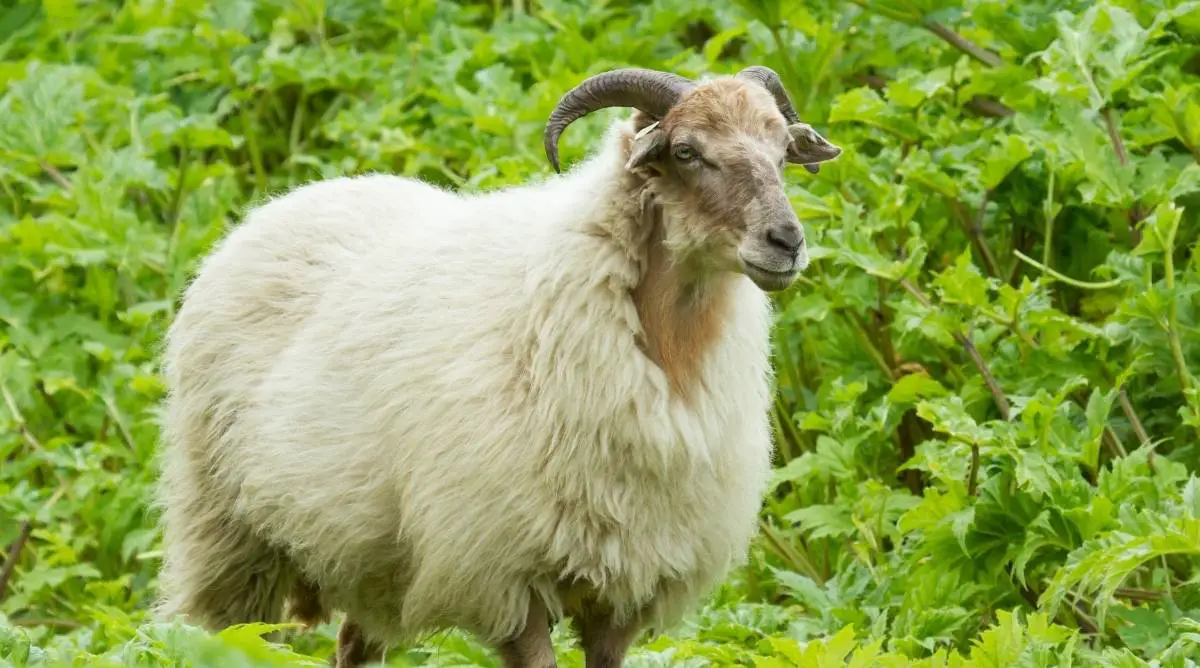Sheep tend to live to around 10-12 years old. Elements that affect sheep lifespan include the quality of care, the breed and genetics of the sheep, their environment, and whether they are domesticated or wild. Some sheep live much longer than the average. According to Guinness World Records, the oldest sheep lived to nearly 29 years old.
Table of Contents
How long do sheep live naturally?
Most sheep live around as long as dogs: 10-12 years.
Sheep lifespan is affected by:
- Quality of care: Whether they’ve gotten appropriate vacciness, whether they’ve been dewormed regularly, the quality of food they eat, and whether they receive medical care quickly.
- Environment: Warm versus cool, wet versus dry.
- Domesticated vs wild: Wild sheep are more vulnerable to predators and adverse climate conditions
What are the life stages of a sheep?
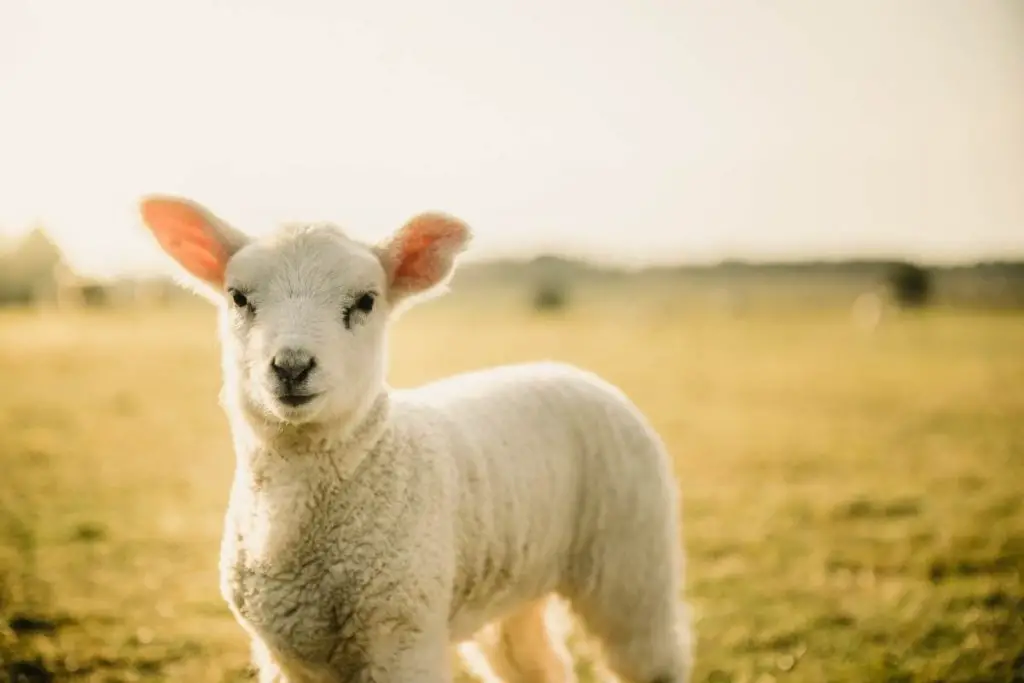
Here’s what to expect of the typical life stages of a sheep:
Gestation to Birth: Five months
- Female sheep have a gestation period of five months and commonly give birth to one or two lambs.
- A lamb usually tries to stand and walk within minutes after it is born.
Nursing: First eight weeks
- It is important for the lamb to get the mother’s first milk (called colostrum). It is rich in vitamins, fats, and carbohydrates, prevents diseases, and cleanses the digestive tract.
Weaning: 8-14 Weeks of age
- A lamb’s diet changes from its mother’s milk to solid food.
- “Weaners” can begin to eat hay, grass, or grain.
Yearlings: 1-2 Years of age
- Sheep are considered yearlings between 1-2 years of age.
- At this point, they are ready for mating, depending on species and gender.
Adults
- After two years of age, sheep are simply referred to as ewes, rams, or wethers.
How a Sheep’s Breed Affects Lifespan
Different breeds have different life expectancies. For example, Dorper sheep are expected to live around seven years, while Jacob sheep regularly live 15-20 years.
Examples:
- Dorper sheep: 7 years
- Shetland sheep: 10-12 years
- Rambouillet sheep: 10-12 years
- Merino sheep: 10-12 years
- Cheviot sheep: 10-12 years
- Bighorn sheep: 10-15 years
- Suffolk sheep: 11-13 years
- Icelandic sheep: 12-14 years
- Jacob sheep: 15-20 years
What happens when sheep get old?
Sheep are culled or sent to slaughter when they are no longer profitable.
Or, if they are kept as pets, they are allowed to die a natural death.
Many farmers get rid of older sheep to create a place for young sheep. Younger animals typically outperform older ones.
How to Determine the Age of Sheep
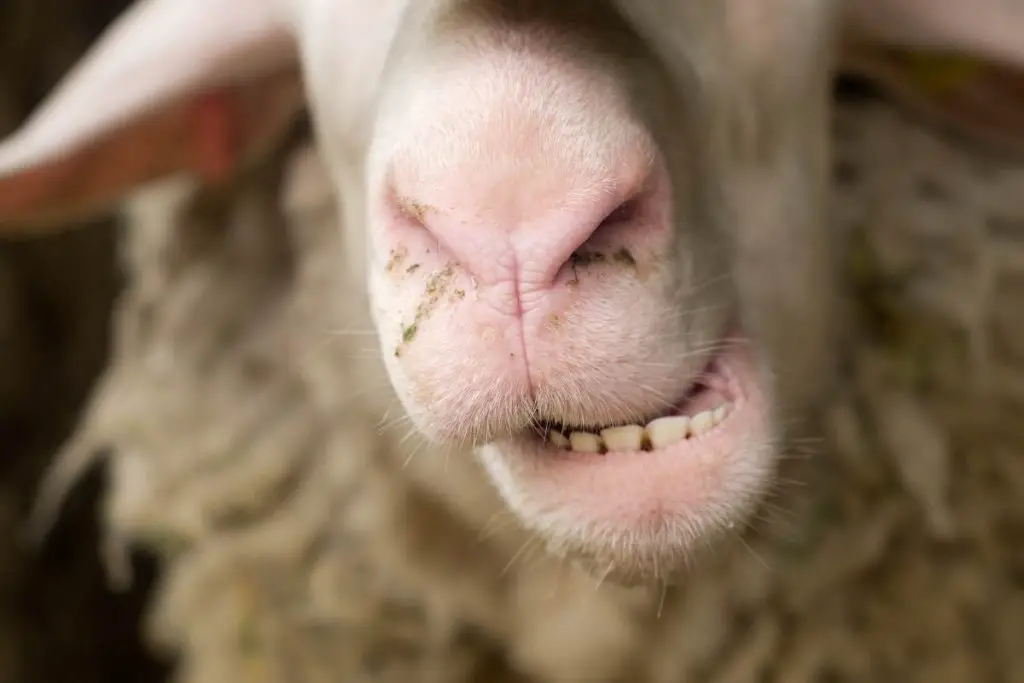
You can estimate a sheep’s age by checking its teeth or horns.
Using teeth to determine a sheep’s age
| 0 age | No teeth |
| 1-2 months | 8 milk teeth with no teeth on top jaw but just pad. |
| 1 year | A pair of permanent incisors replacing the middle pair of teeth at the lower jaw |
| 2 years | Two (2) pairs of permanent incisors or molars |
| 4 years | Four (4) pairs of permanent incisors |
| 5 years | Teeth will spread or break or fall out |
| Up to 10 years | No teeth and are called “gummers” because they graze their gums, that will also affect their ability to eat and remain healthy. |
Using horns to determine a sheep’s age
Each “growth ring” or “annuli ring” in a ram’s horn shows the years of age of the sheep. Bighorn sheep rams begin to develop their horns at birth and do so throughout their lives.
It is crucial to look for the four-year ring to know the age. From there, count the rings backward toward the skull.
As the bighorn ram matures to about eight years old, the ring gaps become smaller.
What was the oldest sheep ever recorded?
Some sheep have drawn media attention and become famous for living to extraordinary ages.
- Methuselina – In Scotland, a Scottish Blackface ewe died in March 2012 at the age of 25 years, 11 months after accidentally falling off a cliff.
- Lucky – A Polwarth-Dorchester ewe in Australia, aged 23 years, 6 months, died in November 2009 after a heatwave.
- Grandma – A Horned Dorset ewe, aged 23 years, 11 months died in Oregon on May 2009. source
According to Guinness World Records, the oldest age of a sheep was 28 years and 51 weeks. The sheep successfully lambed more than 40 times before giving birth to a healthy lamb in 1988, when it was 28 years old. It passed away in January 1989.
Factors that affect sheep lifespan
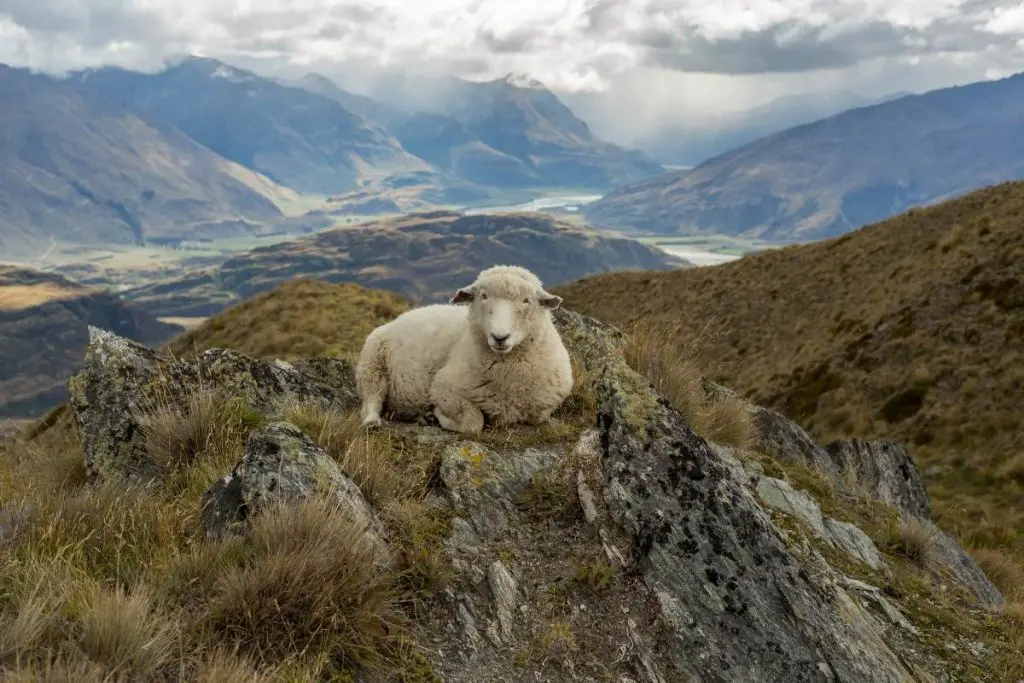
While old age is the leading cause of death, the lifespan of your sheep will depend on a number of different things.
Environment
In the wild, and in difficult environments, sheep often live shorter lives. Their teeth deteriorate and wear faster. It is difficult to stay in good physical shape.
Both in the wild and on farms, predators are one of the main risks to sheep. Foxes, bears, coyotes, lynxes, mountain lions, dogs, wolves, and bobcats are examples of natural predators. Small lambs may even be prey for eagles.
Health
Sheep are prone to a wide range of illnesses. Even with a regular deworming plan, parasites are difficult to deal with and have the potential to both kill sheep instantly and reduce their productivity.
Common fatal conditions include:
| Condition | Symptoms |
| Bacterial Pneumonia | Symptoms include lethargy, high fever, difficulty breathing, loss of appetite, and a painful cough. |
| Caprine Arthritis Encephalitis (CAE) | Signs include mastitis, pneumonia, and inflammation of joints. |
| Coccidiosis | A parasitic disease characterized by constipation, loss of appetite, weight loss, dehydration, and hemorrhaging of the intestinal walls. |
| Enteritoxism (aka overeating disease) | Also known as pulpy disease. It occurs in lambs and causes loss of appetite, fever, lethargy, and abdominal discomfort. |
| Listeriosis | A life-threatening disease exhibited with neuromuscular incoordination, seizures, facial nerve paralysis, ear droop, and defective swallowing. |
| Pregnancy Toxemia (Ketosis) | This is common in ewes that carry multiple fetuses or are over-conditioned for pregnancy. |
| White Muscle Disease | A condition due to selenium or Vitamin E deficiency, affecting lambs and causing muscle stiffness. |
Use
Another variable is how farmers use sheep.
Sheep raised for meat don’t live as long as sheep raised for wool because they are slaughtered, often at one year of age or earlier.
Wool sheep live much longer because they are valued for the wool they will produce in their lifetime.
How to help sheep live longer
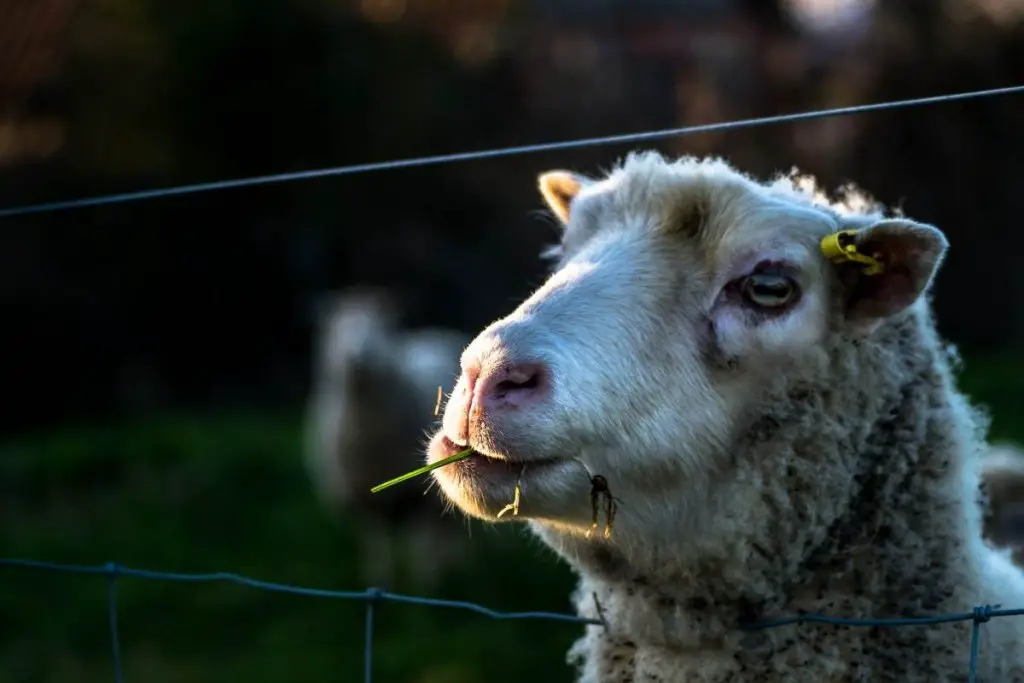
Healthy Diet & Exercise
Giving your sheep access to pasture and other exercise opportunities can ensure their general health stays good.
Good nutrition is also essential. Avoid excessive grain feeding, which has been connected to a number of health issues that can shorten your animals’ overall lifespan.
Vaccinate Regularly
Set up a regular program for administering vaccinations to your animals. Make sure to give your sheep the CDT vaccine while they are young, and provide regular boosters of vaccines that require it.
Reduce Parasites
Basic veterinary care and hygienic farm practices can reduce parasites in sheep. Rotate your sheep frequently to new pastures. A strict deworming regimen is also necessary to keep worm numbers low.
Protect from Predators
Sheep have few ways to defend themselves other than flock together or run to avoid danger. As a farmer, it’s your responsibility to create an environment with good security to keep predators away from your sheep.

